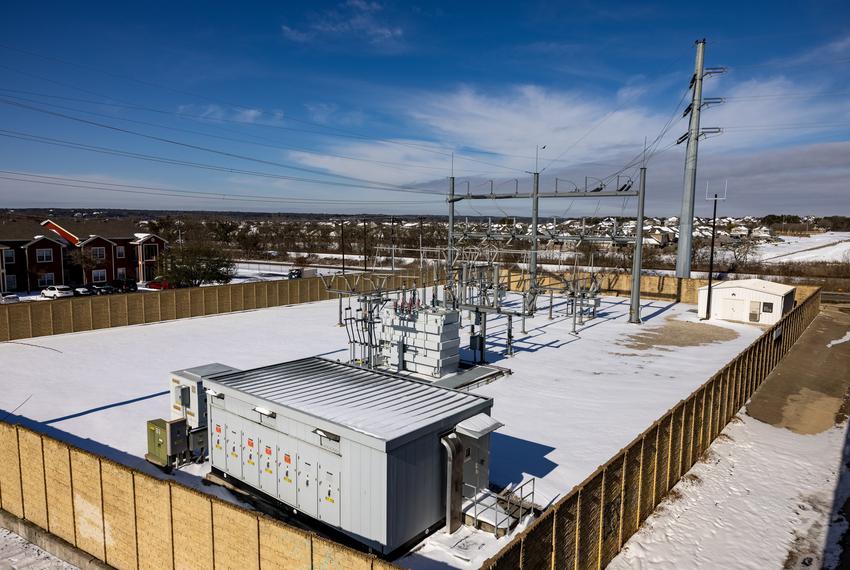Texas energy company that charged huge electric bills during storm files for bankruptcy

HOUSTON, Texas — Griddy Energy, the Texas company that sent sky-high electricity bills to customers during the life-threatening winter storm last month, filed for Chapter 11 bankruptcy protection in the Southern District of Texas on Monday.
The company made the announcement on its website in a post that blamed the Electric Reliability Council of Texas (ERCOT), which operates the state’s electric grid.
“The actions of ERCOT destroyed our business and caused financial harm to our customers,” Griddy Chief Executive Officer Michael Fallquist said in a statement.
Griddy has $1 million to $10 million in estimated assets and $10 million to $50 million in estimated liabilities, the company said in the filing. Over $29 million is owed to ERCOT, the filing says.
The bankruptcy filing stems from February’s devastating winter storm, which shut down power for millions of Texans for days and led to shortages of heat, water, food and medicine. Chapter 11 is a form of bankruptcy that allows a company to restructure its debts and reorganize in order to pay creditors back over time.
Griddy was a feature of Texas’ unusual, deregulated system for electric power. The vast majority of Texans — and Americans — pay a fixed rate for electric power and get predictable monthly bills. However, Griddy works by connecting customers to the wholesale market for electricity, which can change by the minute and is more volatile, for a monthly fee of $9.99.
That setup can lead to savings sometimes, but also exposes customers to big risks.
During February’s winter storm, power generators failed and demand for heating shot up. In response, ERCOT raised the price of electricity to the legal limit of $9 per kilowatt hour and kept it there for several days. Griddy customers who didn’t lose power were hit with massive electric bills that were auto-debited from their bank accounts.
For example, DeAndre Upshaw said the company charged him nearly $7,000, and Katrina Tanner previously told CNN that Griddy charged her $6,225.
“I felt almost guilty with these people not having electricity that I was complaining about my bill,” Tanner said then. “At the same time, my complaint is: How am I gonna pay this?”
In early March, an independent monitor for the Public Utility Commission of Texas found that ERCOT kept prices too high for nearly two days during the storm, leading to $16 billion in overcharges.
Griddy has faced increased scrutiny from the state in the wake of the storm. Last month, ERCOT revoked Griddy Energy’s right to conduct activity in the state’s electricity market for lack of payment.
Following ERCOT’s decision, Griddy posted on their website saying they had “No choice but to power down.”
“We have always been transparent and customer-centric at every step. We wanted to continue the fight for our members to get relief and that hasn’t changed,” the company said.
Two weeks ago, Texas’ attorney general filed a lawsuit against Griddy Energy and Griddy Holdings for “false, misleading, and deceptive advertising and marketing practices.” The lawsuit said Griddy misled customers and downplayed the incredible risk of its pricing scheme, which charges the most when customers are most vulnerable.
The AG’s office said they received over 400 consumer complaints against Griddy in less than two weeks.
